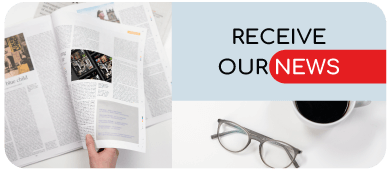
The 2023 edition of the Annual Conference of Europur and Euro-Moulders, respectively the European Association of Flexible Polyurethane Manufacturers and the European Association of Moulded Polyurethane Parts Manufacturers for the Automotive Industry, took place last June in Budapest.
The meeting saw a record number of participants, as many as 500 in attendance plus another 80 online, representing over 120 companies, including more than 60 polyurethane producers from all over Europe and beyond.
Aipef, Aziende Italiane Poliuretani Espansi Flessibili, a member of Europur, attended the conference representing Italian companies.
The Flexible PU Foam Market
The conference opened with an interactive panel discussion on topical issues for the industry entitled 'Flexible PU Foam Markets - Drivers of Change and their Consequences'.
Experts from a number of companies such as Tobias Spyra from Chemical Market Analytics, Philipp Propst from IAL Consultants, Giulia Taveggia from CSIL and Justin Cox from LMC Automotive provided interesting insights into the raw materials and key downstream markets of flexible polyurethane foam, i.e. sectors such as upholstery, bedding and automotive.
Production down across Europe
Clint Raine of Belvedere & Partner presented the 2022 production figures for flexible polyurethane foam, which show an overall drop in polyurethane block production of 8.5% across Europe. There are three main causes for this drop: weakening demand, high raw material prices and a shortage of supply. Production decreased in all regions of Europe, with the exception of Turkey, which recorded an increase of just over 8%. According to the panellists, forecasts for 2023 are not positive and indicate that production is expected to decline further in almost all countries, mainly due to the continued weakening of demand in the upholstery and bedding sector.
MOL Petrochemicals: a case history of sustainability
In the afternoon session, Péter Császár, Senior Vice President Group Downstream Chemicals and CEO of MOL Petrochemicals, explained to the audience how MOL Petrochemicals is transforming itself from a fuel producer to a sustainable chemical company. In fact, MOL has set itself the main goal of achieving climate neutrality by 2050, with some intermediate targets. Major investments in energy efficiency, green energy production and the production of non-fossil chemicals are therefore planned for the coming years.
The modernisation and development of a waste management infrastructure in Hungary is also planned, through a recently awarded public concession. By 2030, MOL's ambition is to reduce the company's greenhouse gas emissions by 30 per cent.
Sustainability of polyurethanes in cars
The second panel discussion was devoted to the topic of 'Sustainability of polyurethanes in automobiles'. The expertise of the speakers ranged from car design with design consultant Atha Tubidis, to raw materials with Esther Quintanilla of Dow, from the production of moulded polyurethane foam parts with Geert Trossaert of Ascorium Industries, to the work of an industry association such as Euro-Moulders, in the talk by Michel Baumgartner. The topics discussed included changes in car design, the electrification of vehicles, the regulatory landscape, the recyclability of polyurethanes and the reuse of recycled materials.
In conclusion, the speakers agreed that to promote the sustainability of polyurethanes in vehicles, cooperation along the entire value chain and with regulators is essential. It is crucial to enable new innovative raw materials to reach the market on an industrial scale, to ensure that chemical recycling is recognised as a legitimate means to provide recycled material and finally to design vehicles and their parts with their recycling and end-of-life in mind.
Sustainability also at the heart of technical sessions
The second day of the conference, traditionally reserved for technical topics, featured six technical sessions in three parallel sections, with a total of 30 technical presentations. The main session was dedicated to Sustainability, the others to Automotive, Health & Safety, Machinery & Digitalisation and Product Stewardship & Additives.
Eric Van Lancker, President of Euro-Moulders, then closed the conference by thanking all speakers, guests and participants and announced that the next one will be held in Istanbul from 11 to 13 June 2024.


 en
en  Italian
Italian French
French German
German Spanish
Spanish Portuguese
Portuguese











